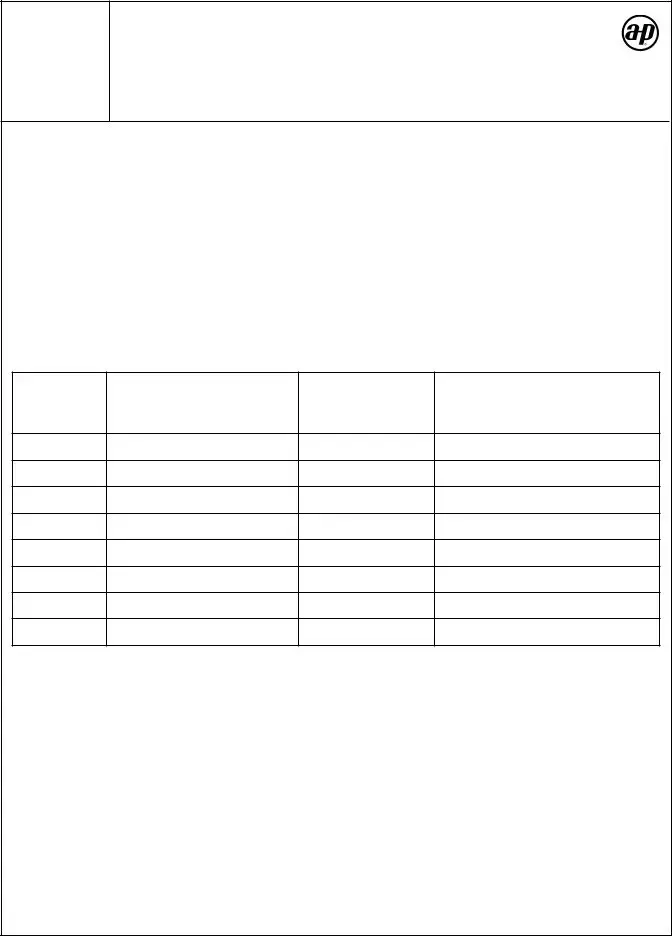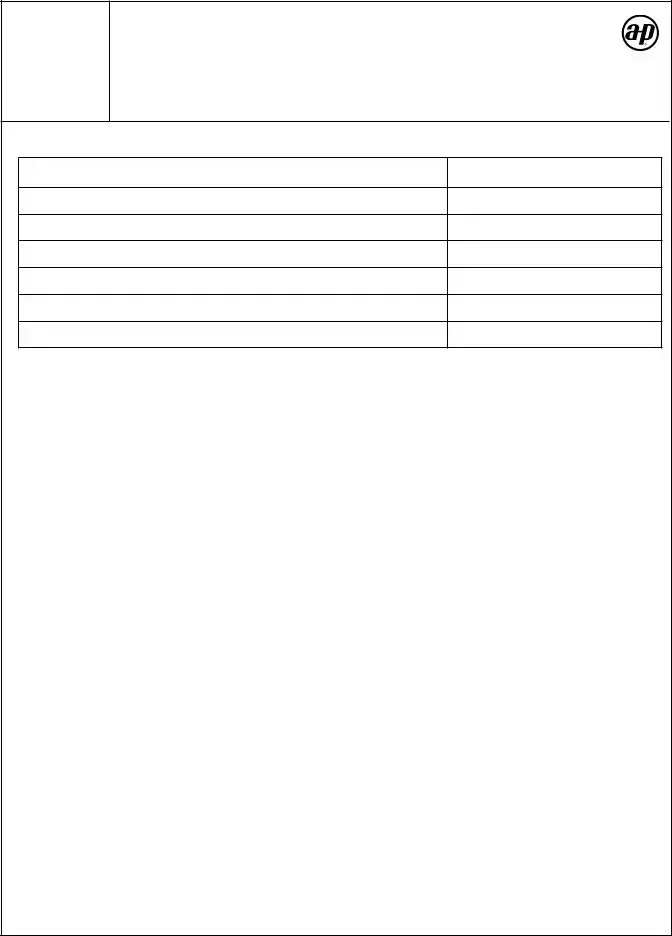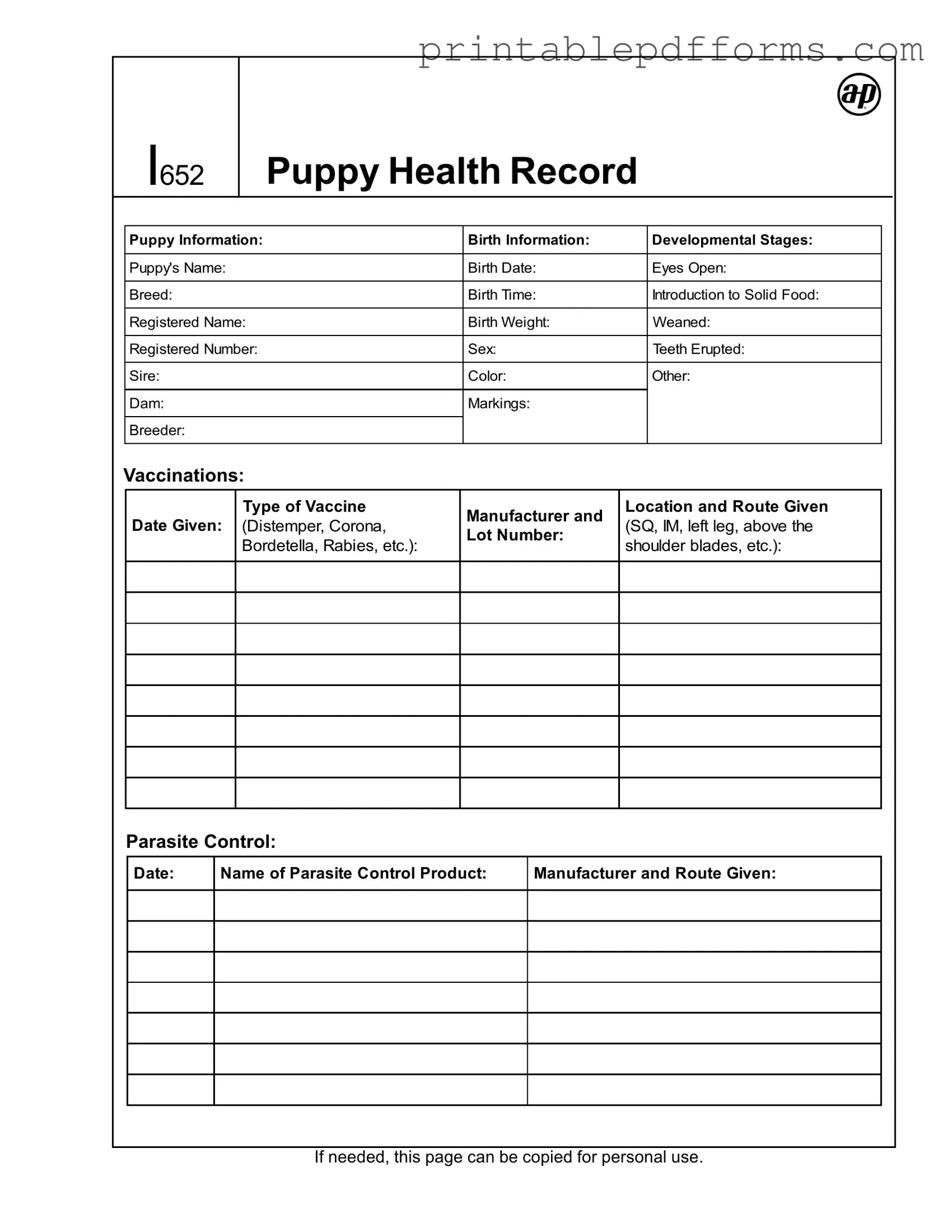Fill a Valid Puppy Health Record Form
When bringing a new puppy into your home, keeping track of their health and development is crucial. The Puppy Health Record form serves as an essential tool for pet owners, providing a comprehensive overview of your puppy's health journey from birth to their early months. It includes vital information such as the puppy's name, breed, and birth details, which help establish their identity and lineage. Furthermore, the form outlines significant developmental milestones, including when the puppy's eyes open, the introduction to solid food, and the eruption of teeth. Vaccination records are meticulously documented, detailing the type of vaccine administered, the date given, and the manufacturer. This ensures that your puppy receives timely vaccinations to protect against common diseases. Additionally, the form tracks parasite control measures, noting the products used and their administration. Regular examinations and procedures performed by either the owner or a veterinarian are also recorded, providing a complete health history. By maintaining this detailed record, you can ensure your puppy's health is monitored effectively, paving the way for a happy and healthy life.
Additional PDF Templates
Geico Supplement Request Form - Authorization from GEICO is required for any supplement claims.
How to File a Mechanics Lien - All parties should understand their rights and obligations regarding the filing and enforcement of a Mechanics Lien.
To successfully navigate the process of seeking a refund, it's important to have all pertinent details ready, including access to the https://georgiapdf.com/st-12b-georgia/, which provides the necessary information and resources related to the ST-12B Georgia form.
Chick-fil-a Job Application - Explore opportunities for personal and professional growth.
Similar forms
Pet Health Record: Similar to the Puppy Health Record, this document tracks health information for pets of all ages. It includes vaccination details, medical history, and any treatments received.
- Bill of Sale: Essential for any pet transaction, the Bill of Sale serves as a formal record of the sale, protecting both the buyer and seller. It's important to understand its implications and requirements, which can be further explored at https://freebusinessforms.org/.
Veterinary Examination Form: This form records findings from a veterinary visit. It captures the veterinarian's observations, treatments, and recommendations, much like the examination notes in the Puppy Health Record.
Pet Adoption Agreement: When adopting a pet, this document outlines the responsibilities of the new owner. It often includes health information and requirements for vaccinations, similar to the health tracking in the Puppy Health Record.
Pet Insurance Application: This form collects health history and vaccination records to determine coverage options. It mirrors the Puppy Health Record by requiring detailed health information for the pet.
Animal Vaccination Record: This document specifically lists vaccinations given to an animal. Like the Puppy Health Record, it details the types of vaccines administered and dates given.
Pet Care Log: This log helps pet owners track daily care routines, including feeding, grooming, and health checks. It complements the Puppy Health Record by providing ongoing health and care information.
Breeder's Health Guarantee: This document often accompanies a puppy purchase and includes health information about the puppy. It provides a guarantee related to the health status, similar to the health details found in the Puppy Health Record.
Document Example

I652
PuppyHealthRecord
Puppy Information: |
Birth Information: |
DevelopmentalStages: |
|
|
|
Puppy's Name: |
BirthDate: |
Eyes Open: |
|
|
|
Breed: |
BirthTime: |
Introductionto Solid Food: |
|
|
|
Registered Name: |
BirthWeight: |
Weaned: |
|
|
|
Registered Num er: |
Sex: |
TeethErupted: |
|
|
|
Sire: |
Color: |
Other: |
|
|
|
Dam: |
Markings: |
|
|
|
|
Breeder: |
|
|
|
|
|
Vaccinations:
Date Given:
Type of Vaccine (Distemper,Corona, Bordetella,Ra ies,etc.):
Manufacturer and ot Number:
ocation and Route Given (SQ,IM,leftleg,a ove the shoulder lades,etc.):
ParasiteControl:
Date: |
Name of Parasite ControlProduct: |
Manufacturer and Route Given: |
|
|
|
|
|
|
|
|
|
|
|
|
|
|
|
|
|
|
|
|
|
|
|
|
Ifneeded,thispagecanbecopiedforpersonaluse.

I652
PuppyHealthRecord PAGE 2
ExaminationsorProceduresPerformedbyOwnerorVeterinarian:
Date: |
Findings and Comments: |
|
|
Owner or Veterinarian Initials:
Schedule of Events fromBirthtoSpayor Neuter
*Each vaccination should ideallybegivenatthree weekintervals.
**Thetimetobeginheart- worm medication can vary dependingontheproduct andtimeofyear.
***The
SeepagesA622andA905for parasitecontrolandvaccination suggestions.
Events |
Age |
Date |
|
|
|
Birthdate |
Day1 |
|
|
|
|
Dewclawremovaland taildock |
|
|
|
|
|
2 weeks |
|
|
|
|
|
Toenailtrim |
2 weeks |
|
|
|
|
Solid food introduction |
3 weeks |
|
|
|
|
4 weeks |
|
|
|
|
|
Toenailtrim |
5 weeks |
|
|
|
|
1stcar trip |
6 weeks |
|
|
|
|
1stshot |
|
|
|
|
|
Physicalexamination yvet |
|
|
|
|
|
6 weeks |
|
|
|
|
|
Weaning |
|
|
|
|
|
Move to cages |
7 weeks |
|
|
|
|
8 weeks |
|
|
|
|
|
Toenailtrim |
9 weeks |
|
|
|
|
2nd Shot* |
|
|
|
|
|
3rd Shot |
|
|
|
|
|
Beginheartwormmedication** |
|
|
|
|
|
12 weeks |
|
|
|
|
|
4thand finalshots |
|
|
|
|
|
Spayor neuter |
|
|
|
|
|
Ifneeded,thispagecanbecopiedforpersonaluse.
Form Specs
| Fact Name | Description |
|---|---|
| Puppy Information | This section includes essential details about the puppy, such as name, breed, and sex. |
| Birth Information | Details such as birth date, time, weight, and the names of the sire and dam are recorded here. |
| Vaccinations | Each vaccination entry includes the date given, type of vaccine, and manufacturer information. |
| Parasite Control | This section tracks the date and type of parasite control product used on the puppy. |
| Developmental Stages | Important milestones, such as introduction to solid food and weaning, are documented. |
| Examinations | Findings and comments from examinations performed by the owner or veterinarian are noted here. |
| Schedule of Events | A timeline outlines significant events from birth to spay or neuter, including vaccinations and deworming. |
| State-Specific Laws | Depending on the state, certain laws may govern the vaccination and health record requirements for puppies. |
Crucial Questions on This Form
What is the purpose of the Puppy Health Record form?
The Puppy Health Record form serves as a comprehensive document to track a puppy's health and development. It includes vital information such as birth details, vaccinations, parasite control, and significant milestones in the puppy's early life. This record helps owners and veterinarians monitor the puppy's health and ensure that it receives necessary care at appropriate times.
What information is included in the Puppy Health Record?
The form encompasses various sections, including:
- Puppy Information: Name, birth date, breed, sex, and color.
- Birth Information: Birth time, weight, and details about the sire and dam.
- Developmental Stages: Key milestones like when the puppy's eyes open and when it is introduced to solid food.
- Vaccinations: Dates, types of vaccines, manufacturers, and administration details.
- Parasite Control: Dates and products used for parasite prevention.
- Examinations or Procedures: Findings from veterinary visits and owner or veterinarian initials.
How often should vaccinations be administered?
Vaccinations should ideally be given at three-week intervals. This schedule allows for proper immune response development in puppies. The initial series of vaccinations typically starts around six weeks of age, with follow-up shots occurring until the puppy is about 15-17 weeks old.
What is the recommended schedule for de-worming?
De-worming is an essential part of a puppy's health care. The recommended schedule includes:
- First de-worming at 2 weeks of age.
- Subsequent de-wormings every 2-3 weeks until the puppy is 12 weeks old.
- Additional de-worming as needed, based on veterinarian recommendations and the type of heartworm prevention used.
What should I do if I lose the Puppy Health Record form?
If the Puppy Health Record form is lost, it is advisable to recreate the document as best as possible. Owners can consult their veterinarian for vaccination records and health checks. Keeping a digital copy or making additional copies of the form can help prevent future loss.
Can I customize the Puppy Health Record form for my needs?
Yes, the form can be customized to fit individual needs. Owners may add sections for additional vaccinations, medications, or notes specific to their puppy's health. It is essential, however, to maintain the core information for effective health tracking.
Documents used along the form
The Puppy Health Record form is essential for tracking a puppy's medical history and development. However, several other documents complement this form, providing a comprehensive overview of the puppy's health and care. Below is a list of these important documents.
- Vaccination Certificate: This document confirms that the puppy has received specific vaccinations. It includes details such as the type of vaccine, date administered, and the veterinarian's signature.
- Medical Power of Attorney Form: This legal document allows you to appoint someone to make health care decisions for your puppy should they become unable to do so. It's vital for ensuring your pet's health care preferences are respected. For additional information, refer to All Ohio Forms.
- Microchip Registration Form: This form registers the puppy's microchip with a national database. It contains the microchip number and the owner's contact information, ensuring the puppy can be identified if lost.
- Health Guarantee: A health guarantee is a contract between the breeder and the new owner. It typically outlines the breeder's responsibility for any genetic health issues that may arise within a specified time frame.
- Spay/Neuter Agreement: This document details the agreement between the new owner and the breeder regarding the spaying or neutering of the puppy. It may include timelines and any penalties for non-compliance.
- Puppy Care Guide: A puppy care guide provides new owners with essential information on feeding, training, and general care. It serves as a helpful resource during the puppy's early development.
- Veterinary Examination Report: This report summarizes the findings from a veterinary examination. It includes notes on the puppy's health, any treatments provided, and recommendations for future care.
- Pet Insurance Policy: A pet insurance policy outlines coverage for veterinary expenses. It helps owners manage costs related to unexpected health issues or emergencies.
By maintaining these documents alongside the Puppy Health Record, owners can ensure they have a complete understanding of their puppy's health and care requirements. This proactive approach promotes the well-being of the puppy and strengthens the bond between the owner and their new companion.
Misconceptions
Misconceptions about the Puppy Health Record form can lead to confusion and potential health risks for your puppy. Here are six common misunderstandings:
- The form is only for breeders. Many believe that only breeders need to complete this form. In reality, all puppy owners should maintain a health record to track vaccinations, treatments, and developmental milestones.
- Vaccinations are optional. Some owners think that vaccinations can be skipped. However, vaccinations are crucial for preventing serious diseases and should be administered as recommended.
- Health records are not necessary after the first year. Many people assume that once a puppy reaches adulthood, health records are no longer needed. In fact, ongoing documentation is vital for any future veterinary care.
- All vaccines are given at the same time. A misconception exists that all vaccines can be administered simultaneously. In truth, certain vaccines should be spaced out to ensure the puppy's immune system can respond effectively.
- Parasite control is a one-time event. Some owners believe that once they treat for parasites, they are done. Regular parasite control is essential throughout a puppy's life to prevent infestations.
- The form is not useful for non-registered puppies. Many think that if a puppy is not registered, the health record is irrelevant. This is incorrect; the form is beneficial for tracking health regardless of registration status.
Understanding these misconceptions can help ensure your puppy receives the best care possible. Keep accurate records and consult with your veterinarian regularly.
